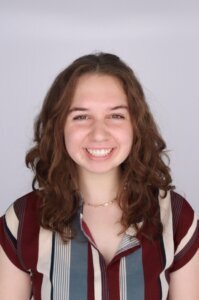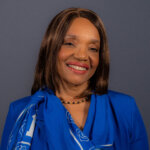This is part of WTOP’s continuing coverage of people making a difference in our community, reported by Stephanie Gaines-Bryant. Read more of that coverage.

Since the COVID-19 pandemic, there has been a decline in the number of people, especially minorities, being screened for breast, lung and colon cancer.
The George Washington University Cancer Center wants people to resume their regular routines of getting screenings.
“We want to make sure that women over 40 are getting mammograms, either yearly or every other year. We want to make sure that people over 45 are getting colonoscopies,” Hannah Safron, a community health associate with the George Washington University Cancer Center said.
She added that the cancer center in Northwest D.C. wants to make sure that people are getting screened for lung cancer, especially if they’re currently smokers.
Safron said there are barriers to health care for minorities, some are personal. “A lot of it is fear. People are scared of what the answer might be, what the results may say,” she said.
So, she said it’s easier for many people to just put it off.
Safron said there are also structural barriers for marginalized communities, “If they have grown up in an area that’s been redlined, if it takes a long time to get to care, if their doctors are not representative of them, and they don’t feel listened to.”
That’s why Safron said staffers at the George Washington University Cancer Center have trained neighborhood health ambassadors through its (SCREEN) Strengthening Community Reach and Equity by Engaging Neighborhood program.
The program takes community members who don’t necessarily have any health care training and teaches them to be community health workers.
She said the training happens partially in a classroom and partially out in the field, to practice health education. Then neighborhood health ambassadors identify people in their own circles who may not be consistently getting screenings.
The program includes 100 hours of training and 44 practicum hours.
Neighborhood health ambassadors were on hand last weekend at the Sisters4Fitness 5K Run/Walk in Bowie, Maryland, at Allen Pond Park.
The event was aimed at getting African American women to take better care of their health. The neighborhood health ambassadors distributed information and encouraged women to get regular mammograms.
Get breaking news and daily headlines delivered to your email inbox by signing up here.
© 2024 WTOP. All Rights Reserved. This website is not intended for users located within the European Economic Area.







